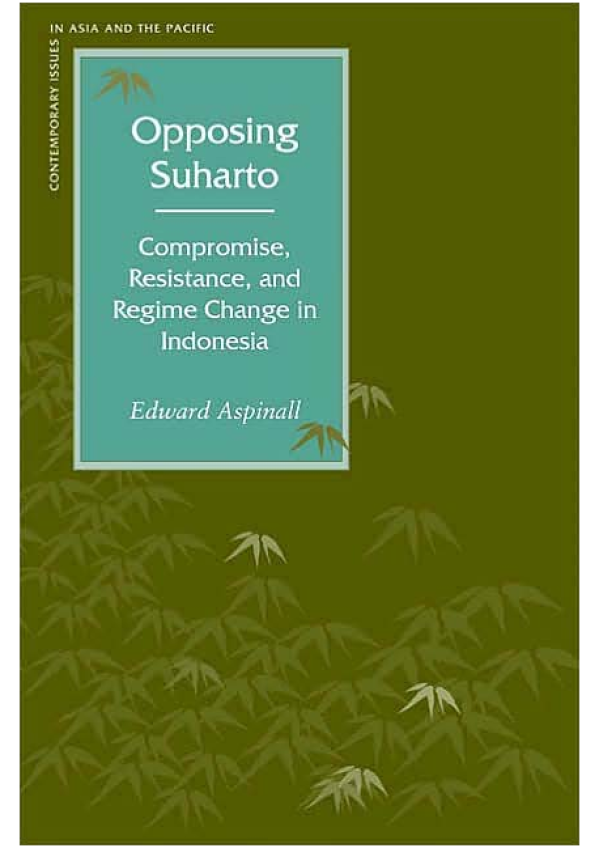Opposing Suharto
In Pancasila Democracy there is no place for Western style opposition (oposisi ala Barat). In the world of Pancasila democracy we have deliberation (musyawarah) to achieve consensus (mufakat) of the people. Here we do not have opposition like that in the West. Opposition for the sake of opposing, for the sake of being different, is unknown here. (Dwipayana and Ramadhan 1989, 346)
This statement, from President Suharto’s 1989 autobiography, makes it clear that in his “New Order” government the very concept of opposition was an official anathema. Suharto and other regime leaders expounded a “Pancasila ideology” which extolled “traditional” and “authentic” Indonesian values of mutual assistance (gotong royong), deliberation (musyawarah), and consensus (mufakat). They insisted on the fundamental unity of state and society and routinely portrayed individuals and groups which challenged them as selfishly placing their own narrow interests before those of society as a whole. Such opponents, they argued, forfeited their rights to participate in the consensual life of the body politic. An all-pervasive and often brutally effective coercive apparatus was always ready to be deployed against such people. Even leaders of the permitted political parties thus routinely denied that their parties were “oppositions.” When liberal intellectuals such as Muslim scholar Nurcholish Madjid advocated the need for a “loyal opposition” within the New Order framework (see, e.g., Madjid 1994), they were rounded upon by government spokespeople.
Belum ada ulasan untuk buku ini.


